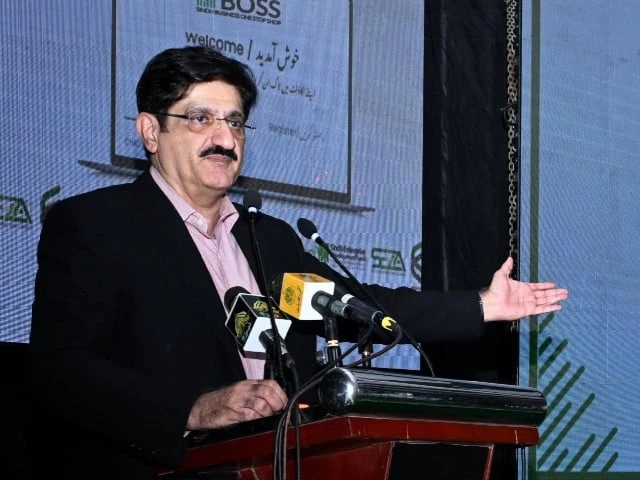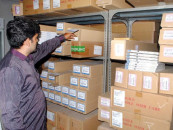Sindh's claim of Rs180b cess from oil importers still threatens supply
Provincial govt releases one oil cargo, demands bank guarantees instead of undertaking from companies to clear cargoes

The oil crisis in the country may deepen as the industry faces possible collapse due to the claims of Rs180 billion on account of the Sindh Infrastructure Development Cess imposed by the Sindh government on the import of petroleum products.
The Sindh government on Tuesday released one oil cargo of Pakistan State Oil (PSO), stuck at the port over the SIDC issue. Now, the provincial government is seeking guarantees from PSO and other oil marketing companies (OMCs) of infrastructure cess payment for the release of further oil cargoes.
The Sindh government and the oil industry have been locked in a dispute over the imposition of SIDC since 2021. According to oil industry officials, the Sindh government had imposed the infrastructure development cess on petroleum product imports in 2021. However, the oil industry obtained a stay order from the Sindh High Court.
They said, a two-member bench of the Sindh High Court later vacated the stay order and directed the industry to pay the cess. Oil companies then filed an appeal in the Supreme Court, but the apex court also directed the industry to pay the cess.
At that time, the then-petroleum minister asked the oil industry to give an undertaking to the Sindh government that they would pay once the case was finally settled in court. Since 2023, however, the implementation of the court’s decision had been pending. The Sindh government has now directed OMCs to pay the cess retroactively, from 2021.
Read More: Fuel shortage temporarily eases as Sindh clears PSO vessel
The Sindh government has claimed that the oil industry owes approximately Rs180 billion on account of the cess. Oil industry officials, however, argue that the cess was never included in the oil pricing mechanism and, therefore, they are unable to pay the tax.
The industry has approached the Petroleum Division, requesting its intervention to resolve the issue.
“The oil industry will collapse if it is forced to pay Rs180 billion as claimed by the Sindh government,” industry officials warned.
The deputy director (HQ), Directorate General (Excise & Taxation Wing), Sindh, wrote a letter to the petroleum minister on October 17, calling for implementation of the Supreme Court’s decision directing OMCs to pay the cess.
“It is informed that in pursuance of the orders of the Supreme Court of Pakistan, dated 01.09.2021 and the provincial cabinet’s decision dated 06.10.2025, the Excise, Taxation & Narcotics Control Department, Government of Sindh, requests that Pakistan State Oil and all other petroleum product importing companies submit bank guarantees instead of undertakings for the release of their consignments,” the Sindh Excise Department stated.
The department requested that PSO and other OMCs be directed to submit the required bank guarantees to ensure compliance with the Supreme Court orders 'in letter and spirit'. It added that upon submission of the requisite documents, their cases would be processed on a top priority basis by the government of Sindh.
Sindh clarified that any delay in submitting bank guarantees, resulting in disruption or shortage of fuel supply, would be the sole responsibility of PSO and other OMCs. The Sindh cabinet also held a meeting on October 6, 2025 regarding the levy of infrastructure development cess on petroleum product imports.
After detailed deliberations, the cabinet decided that the administrative department should immediately inform the federal government, the Ministry of Petroleum and PSO to ensure immediate compliance with the Supreme Court orders and direct PSO and other companies to submit bank guarantees within 15 days.
The draft correspondence was to be prepared in consultation with the minister for law and the Advocate General of Sindh. The cabinet further directed that the administrative department ensure issuance of the said references without any further delay.





















COMMENTS
Comments are moderated and generally will be posted if they are on-topic and not abusive.
For more information, please see our Comments FAQ